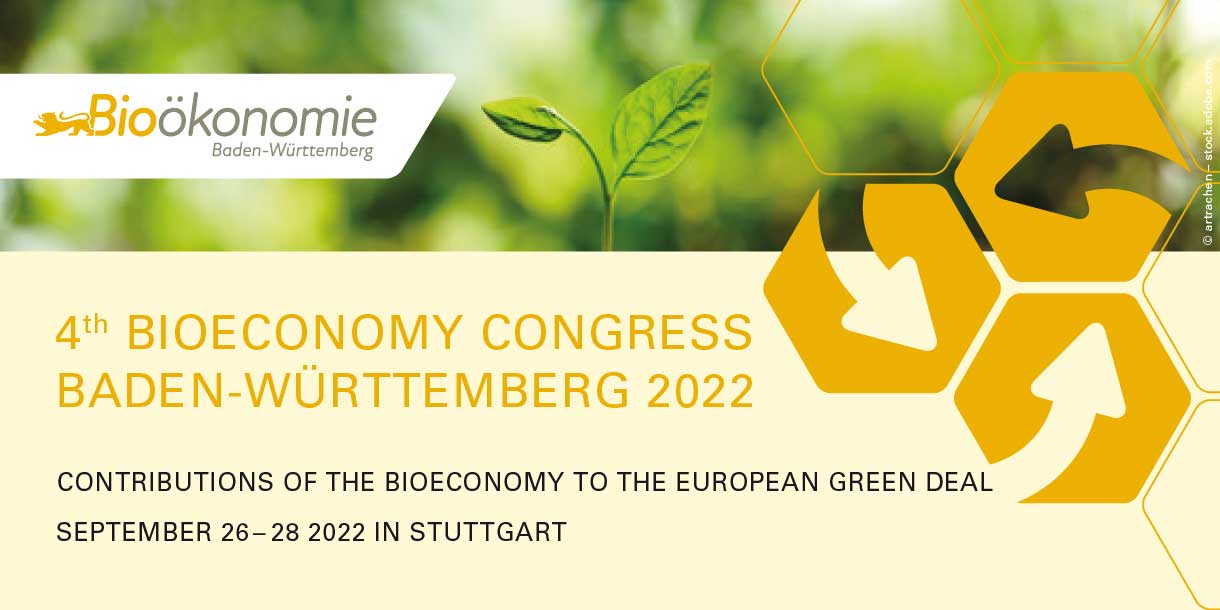
The bioeconomy is regarded as one of the major drivers of future innovation. It contributes to the transformation of the current economic system as it involves resource efficient strategies to produce, use and recycle biobased goods at the end of their lifecycle. The bioeconomy also creates new approaches for supplying food and provisioning materials, products and energy. Thus, the bioeconomy is important for climate and environmental protection and also has great potential to create sustainable jobs.
Baden-Württemberg is one of the leading regions for bioeconomic innovations in Europe. The fourth Baden-Württemberg Bioeconomy Congress will present four sessions and a final discussion under the title "Contributions of the Bioeconomy to the European Green Deal”. The target groups of the congress are experts and interested persons from science, industry, practice and politics.
To complement the congress, several side events will take place on the 26th, 27th and 28th of September 2022, such as seminars, workshops or excursion to lighthouse projects and research institutions.
